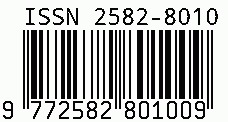
International Journal of Leading Research Publication
E-ISSN: 2582-8010
•
Impact Factor: 9.56
A Widely Indexed Open Access Peer Reviewed Multidisciplinary Bi-monthly Scholarly International Journal
Plagiarism is checked by the leading plagiarism checker
Call for Paper
Volume 6 Issue 4
April 2025
Indexing Partners



















Advanced Logging Techniques Using Log4j and SLF4J for Debugging in Enterprise Applications
| Author(s) | Bhargavi Tanneru |
|---|---|
| Country | United States |
| Abstract | Efficient debugging and monitoring are crucial for maintaining enterprise applications. Log4j and SLF4J are widely adopted logging frameworks in Java-based applications that enhance logging capabilities and facilitate debugging. This paper explores advanced logging techniques using these frameworks, addressing key issues such as log management, performance optimization, and security considerations. The study highlights structured logging, asynchronous logging, and best practices for effective debugging in large-scale enterprise environments. Additionally, we discuss logging strategies for microservices, best practices for log retention, and integration with observability tools. The impact of these techniques on system maintainability and performance is also discussed in depth. |
| Keywords | Logging, Debugging, Enterprise Applications, Log4j, SLF4J, Structured Logging, Asynchronous Logging, Microservices, Observability, Security Logging |
| Field | Engineering |
| Published In | Volume 2, Issue 5, May 2021 |
| Published On | 2021-05-12 |
| Cite This | Advanced Logging Techniques Using Log4j and SLF4J for Debugging in Enterprise Applications - Bhargavi Tanneru - IJLRP Volume 2, Issue 5, May 2021. DOI 10.5281/zenodo.14905592 |
| DOI | https://doi.org/10.5281/zenodo.14905592 |
| Short DOI | https://doi.org/g85r3w |
Share this


CrossRef DOI is assigned to each research paper published in our journal.
IJLRP DOI prefix is
10.70528/IJLRP
Downloads
All research papers published on this website are licensed under Creative Commons Attribution-ShareAlike 4.0 International License, and all rights belong to their respective authors/researchers.

